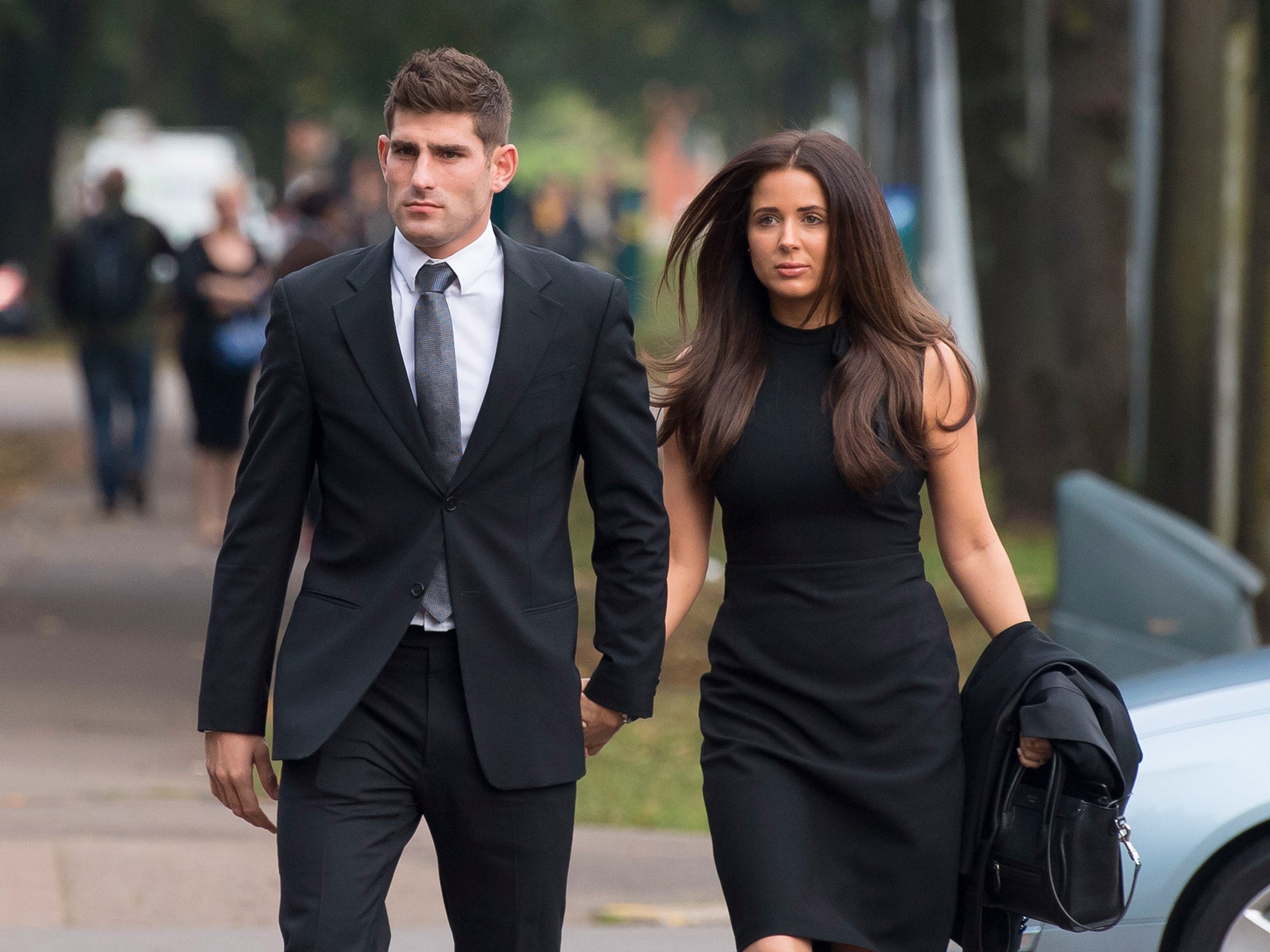Ched Evans: Suggestion woman at centre of case should be prosecuted 'intellectually flawed'
'The verdict means that a particular jury was not satisfied beyond reasonable doubt of [Evan's] guilt, so it is not the same as saying the woman has lied'

Following a two-week-long retrial clearing Ched Evans of rape, supporters of the Chesterfield striker have taken to social media to attack the woman at the centre of the allegations for perverting the course of justice.
Mr Evans was originally found guilty in 2012 of raping a woman who was two-and-half-times over the drink-drive limit and deemed unable to consent by the jury. This was quashed in April on appeal due to new evidence found during a private investigation by his family.
In a case that has already resulted in nine convictions due to Twitter trolling over the allegations, people have continued to accuse the woman online of “lying” during the case and some have claimed she should face trial herself for deliberately “trying to ruin someone’s career”.
A partner at one of London’s leading law firms has debunked these suggestions, citing the UK’s jury trial system and the legal standard of proof beyond reasonable doubt.
Robert Brown, a partner at Corker Binning, told The Independent: “In a jury trial, as in this case, it is for the prosecution to persuade the jury beyond reasonable doubt that the defendant is guilty.
“The verdict means that a particular jury was not satisfied beyond reasonable doubt of [Evan's] guilt. It is not the same as saying the woman has lied.
“Saying she should be prosecuted for perverting the course of justice is a complete non sequitur. The Crown Prosecution Service could prosecute her if there’s evidence she was deliberately lying, but there is no evidence of that."
Under the UK’s jury system, the jury cannot give any reasons for their verdict in court and deliberations by the jury are never made public.
“The fact that the jury do not give any motive for their decision is one of the reasons why you cannot say this woman should be prosecuted,” said Mr Brown. “Because it may be that the evidence from the woman was not the deciding factor in the case.
“In jury trials, 12 ordinary people make a decision and they’re not allowed to give anyone the reasons for that decision. So it is intellectually flawed for member of the public to make an assumption that the woman was lying.”
Rape support groups have attacked Friday’s verdict saying the case “trivialises rape and puts women off reporting”.
During the retrial, the jurors heard new evidence from two former sexual partners of the accuser which had been found by private investigators.
A complainant’s sexual history is rarely heard in trials involving sexual offences but Mr Evan’s legal team sought permission under Section 41 of the Youth Justice and Criminal Evidence Act.
The campaign group Women Against Rape criticised the decision to allow this, saying it risks deterring women from reporting rape for fear their sex lives would be aired in court.
“Women are appalled at the verdict after previous boyfriends were allowed to give evidence," a spokesperson said.
"This sets a dangerous precedent to allow irrelevant sexual history evidence, which the law was supposed to prevent, opening the floodgates to trashing the woman’s character in any rape trial once again."
